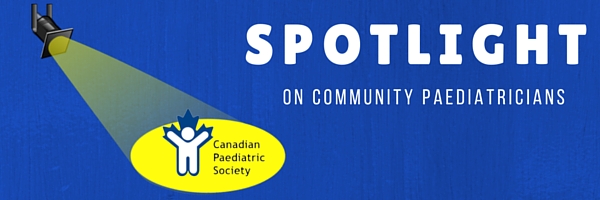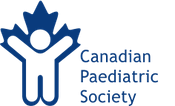Spotlight on community paediatricians: Dr. Trent Smith

If you know a community paediatrician who should be featured, please contact [email protected].
Spotlight feature: Dr. Trent Smith
Can you tell us a little bit about yourself?
I graduated from UBC with a degree in Physical Education in 1992. I completed my MD in Edmonton in 1997, and did residency training at BC Children’s Hospital in Vancouver, finishing in 2001. I then did a further year of work in Vancouver, primarily in the NICU before moving to Kamloops to begin practice and have lived in Kamloops ever since. I am married to Naomi, and have two athletically minded boys, aged 11 and 13. Within the past year we’ve added a dog to the mix as well.
Where were you born and where do you live now?
Although born in Calgary, I moved to the Okanagan early in life, and consider Vernon my hometown. It is not a coincidence that I now practice in Kamloops, which is within a 90 minute drive of where I grew up.
Can you describe your practice?
My practice provides variety, in every sense of the word. I run an office, and share space with three fantastic colleagues, and four outstanding support staff. Our office set-up allows easy “hallway consults”, and although I’ve been in practice for nearly two decades, the chance to get a quick informal second opinion is invaluable.
I also act as medical lead for two multidisciplinary clinics; our regional Paediatric Diabetes Clinic, and a provincially coordinated paediatric obesity program.
Finally, I am the site co-director for UBC undergraduate medical education in Kamloops. In that role, I work to ensure the medical students who spend their third year in Kamloops are exposed to a medical education that is comparable to all of the other sites in BC, as part of UBC’s distributed medical education program.
What is the best part of your practice?
I think the variety that is inherent to practicing in a medium-sized city that lies a number of hours by road from a tertiary centre is what makes my practice most enjoyable. We see an amazing breadth of paediatric medicine, and although very well supported by our sub- specialist colleagues in Vancouver, have the onus to support families and manage complex medical issues that run the gamut of paediatrics.
What are you most proud of initiating in your community?
I’m reluctant to claim credit for initiating anything within our community. I’ve had a hand in building a paediatric diabetes care team that I think delivers excellent service to the patients that rely on us.
I have been involved in expanding the medical education landscape in Kamloops, beginning with the establishment of an R2 paediatrics rotation for UBC residents, continuing through the establishment of a Yr3 clinical clerkship year for UBC medical students in the Southern medical program, and most recently through the establishment of a Family Medicine residency training program based in Kamloops. But none of the above would exist if not for a whole community of health professionals who share similar goals and visions.
What is the most valuable lesson you’ve learned as a community paediatrician?
To note one lesson learned would be a disservice to the myriad of things I’ve learned from people and situations over the years. Approaching every day with a mind open to possibilities, and ready to adapt and adjust is the distilled result of any wisdom that I have managed to accumulate.
What piece of advice would you share with a colleague just starting out?
To me, the most important thing is to recognize the value of the relationships you become involved in. We are in a people profession, and most of what we do every day relies on interpersonal relationships. I think it’s particularly important to respect and value colleagues, because a cohesive department makes work life so much easier. Respecting the concerns, attitudes, and beliefs of patients and their families is also key to building trusting therapeutic relationships. Finally, recognizing the role paediatricians play as one of a number of team members involved in the care of any given child ensures the value the contributions made by all.
What do you see as the biggest challenge for paediatrics in the next decade?
The next decade is likely to bring further erosion of the role of paediatricians as diagnosers of illness and further expansion of our role as coaches and managers of chronic conditions. These include most prominently mental health and behavioural concerns, obesity related medical complications, and care of the medically complex child. I think the challenge will be for training programs to recognize that role, and support trainees in developing the requisite skill set to effectively provide the care these populations require. I think we will continue to be challenged by a fee-for-service model that makes team-based care delivery less appealing, though I hold out hope that more opportunities for school outreach and multidisciplinary team meetings will evolve as part of the way we work.
What do you do in your spare time?
My practice and home is deliberately based in one of the most geographically and climatically perfect areas in the country. The environment in the interior of BC allows me and my family to pursue a range of outdoor activities, and increasingly for my wife and I to pursue our two boys, as they are beginning to outpace us! We spend our summers cycling and camping, while winters are spent mostly on skis. We are lucky to be able to overlap summer and winter sports in both the spring and fall due to our proximity to elevations that get and keep snow, while the valley stays warm and dry.
Copyright
The Canadian Paediatric Society holds copyright on all information we publish on this blog. For complete details, read our Copyright Policy.
Disclaimer
The information on this blog should not be used as a substitute for medical care and advice. The views of blog writers do not necessarily represent the views of the Canadian Paediatric Society.
Last updated: Nov 10, 2016
